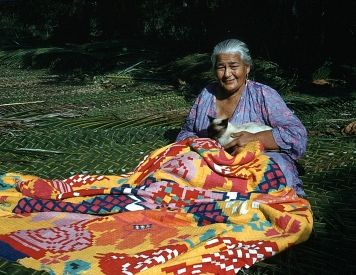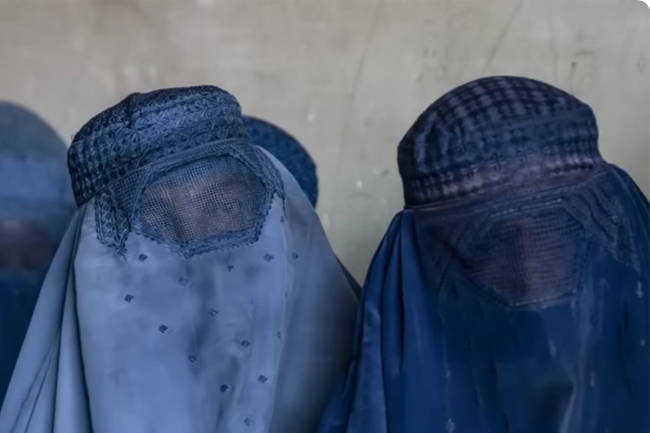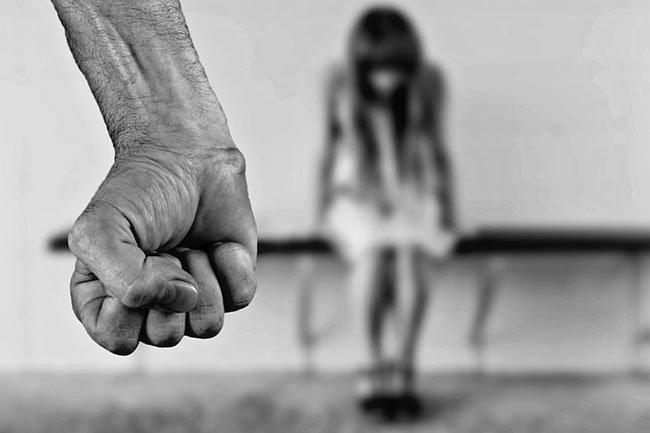New laws have been introduced in Afghanistan that prohibit women from being seen or heard in public, attracting the ire of both the United Nations and world leaders. Johanna Higgs reports.
I REMEMBER walking into Afghanistan, nervous because it has long been known to be one of the worst places in the world for women.
From a small remote village in Tajikistan, I approached the border with Afghanistan in an old taxi. It was one of the most remote border crossings I have ever crossed. Set against rugged snowcapped mountains and wild, vast hinterland, the small rickety taxi stopped in what looked like the middle of nowhere.
I stepped out of the taxi and felt the cold snap of the air on my face. I was dressed as a Tajik woman with a long colourful dress and a thick sweater, my hair swept up in a sparkling gold scarf bought in a market in a nearby town. I stepped out of the taxi and walked towards the border.
Entering into the small immigration box on the Tajik side, I was the only one there. The Tajik immigration official looked up in surprise as I entered.
“You’re going to Afghanistan?” he asked me in English.
“Yes,” I replied.
“Alone?” he asked.
“Yes,” I said.
He raised his eyebrows and said, “You are very brave.”
After stamping my passport out of Tajikistan, he accompanied me out of the immigration box. With the wild, windswept mountains around us, we walked up to the official entry point of Afghanistan, which was marked with a huge, prison-like fence.
On the other side, the Afghan border guard approached us, a very tall man with a long beard and a gun slung over his shoulder. As soon as he saw me, a very familiar sneer came over his face, which I had seen many times before. A lecherous, disrespectful and highly degrading look.
I felt a cold chill go down my back as I felt the awful familiar sensation of disrespect, that I was being looked at as less than, an object, something of no worth.
I looked over to the Tajik border guard. He was looking at the Afghan guard and appeared very, very wary.
“Be nice,” he told him in English and then pulled open the gate for me to walk through.
I walked through.
With the sneer still on the border guard's face, we started to walk towards the immigration post. I could hear the wind whistling through the air and I was distinctly aware that there was nobody else there, just the wild mountains and this tiny immigration post.
I immediately asked for the Afghan guard's phone. Before coming, I had made a connection with an English school in a nearby town and had arranged for two of the teachers to pick me up from the border. I thought that if the border guard knew that I was in contact with some local Afghans, he would leave me alone.
I was right. After calling the number the teachers had given me, I gave the phone to him. He took a step back and the leer dissipated a little. This was not out of respect to me but rather respect to the Afghan males he assumed I was associated with.
My time in Afghanistan proved that the situation for women and girls was just as dangerous and unfair as it was reported to be.
Years later, from my home in Cambodia, I watched in horror as the Taliban marched into Kabul. I remember thinking, how could the situation for women in Afghanistan get any worse? Yet, with this news, it apparently has.
New laws now prohibit Afghan women from showing their faces in public and restrict their voices from being heard in public spaces. The edict, which comes as part of a broader series of restrictive measures targeting women’s rights, has been met with intense criticism from both domestic and international communities.
The new rules were unveiled in a statement issued by the Ministry for Promotion of Virtue and Prevention of Vice and demand that women must cover their faces completely when outside their homes. They have forbidden women from speaking publicly or participating in any form of public discourse where their voices could possibly be heard by men. This includes public speeches, participation in community meetings and any interaction that involves verbal communication in public spaces.
The Taliban’s justification for the new ban on women's voices in public spaces, particularly in media, draws from their interpretation of Islamic principles and Afghan cultural values. They argue that the move aligns with their vision of upholding “modesty” and “honour” for women, as well as maintaining societal morality.
The Taliban often cites a conservative interpretation of Sharia (Islamic law) to justify these restrictions, claiming they are protecting women’s dignity by limiting their public roles.
Under the new guidelines, women will face severe penalties for non-compliance, including potential arrest and fines.
The Taliban’s move has been described as a further tightening of the regime’s already brutal and discriminatory policies on women’s rights and critics have argued that the new restrictions are a gross violation of human rights and freedoms.
Human rights organisations, such as Amnesty International and Human Rights Watch, have condemned the ban, calling it a blatant attempt to erase women from public life and have stated that these measures severely undermine women’s autonomy and ability to participate fully in society.
Numerous international leaders have also voiced their disapproval with the United Nations Secretary-General describing the ban as ‘a violation of the inalienable fundamental human rights of women’, calling for immediate action to reverse the measures. Similarly, Western governments have urged the Taliban to respect international human rights standards and engage in dialogue to address the concerns of Afghan women.
Inside Afghanistan, the reaction to the ban has been one of profound distress and anger. Afghan women’s rights activists, many of whom have already faced significant risks for their advocacy, are now organising protests and seeking ways to challenge the new restrictions. Social media platforms, despite limited access in the country, have seen a surge of discussions and dissent from Afghan women and their allies.
The Taliban’s latest move has not only further isolated Afghanistan from the global community but has created what can only be called an extreme humanitarian crisis for women in the country. Aside from the deep offence the new law has generated, there is now an even more deep concern for the well-being and safety of women and girls inside Afghanistan.
While the Taliban’s moves to ban women’s voices in public represent an extreme version of violence against women and girls, it highlights the global issue of serious issues of violence against women and girls that includes, the suppression of women’s voices.
So as I sit back in the stifling heat of my rural Cambodian home, another country where women’s rights are severely underrepresented, I feel the horror of what is happening to women in Afghanistan. Knowing what it felt like to walk the streets of small dusty villages before the Taliban took over, I cannot imagine what it must feel like now.
We must all stand up for the women and girls of Afghanistan, we must speak to demand their right to speak and demand that all forms of such incredible violence and oppression against women not be allowed anywhere in our world, including Afghanistan.
Because women, like men, have the right to talk.
Johanna Higgs is an anthropologist and founder of Project MonMa, which advocates for women’s rights around the world.
 This work is licensed under a Creative Commons Attribution-NonCommercial-NoDerivs 3.0 Australia License
This work is licensed under a Creative Commons Attribution-NonCommercial-NoDerivs 3.0 Australia License
Support independent journalism Subscribe to IA.

Related Articles
- Sanctions driving Afghans to brink of starvation
- Australia must help Afghans deprived of lives, dreams and futures
- Iconic Afghanistan: Life before war
- Afghanistan is a warning of global denialism
- JOHN PILGER: How the U.S. ruined Afghanistan playing the 'great game'














